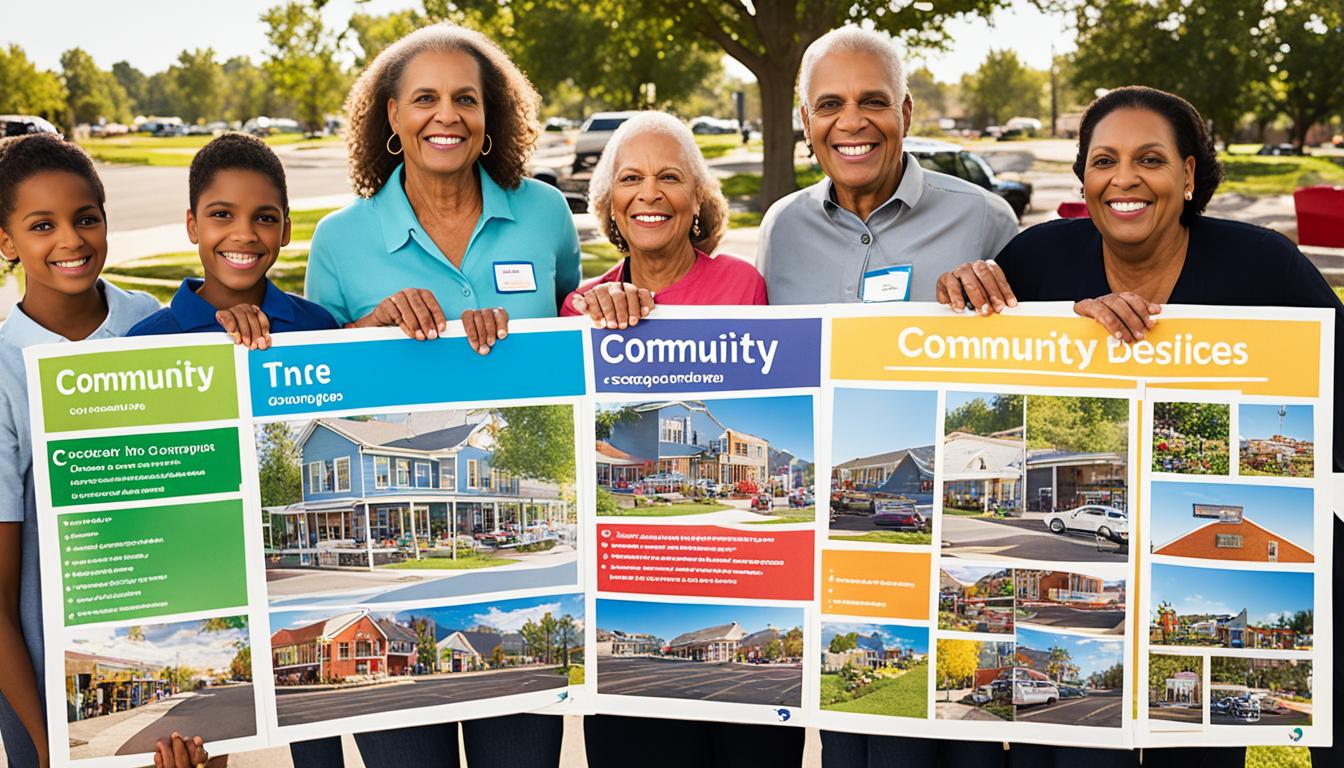Getting everyone on the same page is no small task. But with a few social planning strategies and a participatory planning process, you can make that journey smoother and more productive. Social planning isn’t just about organizing events or meetings—it’s about fostering collaboration, addressing community needs, and building strong relationships between community leaders, residents, organizations, and government agencies. It’s a structured social planning process that connects social policy, services, and people to create meaningful outcomes for every community.
Ready to streamline your approach? Dive into these 10 social planning strategies that cover everything from clear communication to setting achievable goals. Let’s explore how these steps can make a difference in your planning process, with a few tips on using Weekplan to keep your action plans on track.
Role Of Social Planning In Community Development Success
Before setting your objectives, it’s vital to recognize the importance of participatory planning and the guidance of community leaders. Involving local voices early ensures that your social planning process accurately reflects the community’s real needs and social values. This collaborative foundation enables decision-makers to create action plans that are both inclusive and effective, bridging the gap between social policy goals and on-the-ground realities.
1. Define Your Objectives Clearly
Clear objectives are the backbone of any successful social planning initiative. Defining your primary goals early on not only gives direction but also aligns all team members on the same mission. For instance, are you aiming to boost community engagement, support social justice, or enhance informed decision-making? Having clarity on these goals enables you to avoid unnecessary detours and focus your resources where they’re needed most. To begin, outline your main objectives and break each into smaller, achievable steps.

Weekplan’s Goal Setting feature can simplify this process, allowing you to structure your objectives within a flexible, trackable framework. This keeps you focused and helps you monitor progress, ensuring that you’re always moving toward your goals in a structured manner. Over time, this clarity in objectives will foster a sense of purpose and productivity across your entire team.
2. Empower Community Leaders Through Participatory Planning
Community involvement from the beginning can make a huge difference in social planning. When people feel included from the outset, they’re more invested in the outcomes and more likely to support initiatives wholeheartedly. Inviting community members to share ideas, opinions, and needs early on also brings in diverse perspectives, which can lead to more robust and sustainable plans. This initial involvement not only builds trust but also creates a sense of ownership among community members.

To bring this into action, start by organizing forums, surveys, or focus groups to gather input. This allows you to gather valuable insights directly from those who will be affected by the outcomes. Within Weekplan, the Task Prioritization tool helps organize these outreach activities, ensuring that you cover all necessary touchpoints to build early and meaningful community engagement with the community.
3. Set Measurable Milestones
Setting measurable milestones is essential for maintaining momentum and ensuring that your social planning efforts stay on course. By breaking down larger objectives into smaller, trackable steps, you can assess progress regularly and make adjustments as needed. This helps everyone feel that they’re making headway, which boosts motivation and provides tangible checkpoints to celebrate along the way.

A practical way to implement this is by defining clear tasks and setting realistic deadlines for each milestone. With Weekplan’s OKR (Objectives and Key Results) feature, you can track these milestones effectively, measuring the impact of each step and keeping everyone informed about progress. Regular check-ins on milestones provide transparency and reinforce a sense of accountability among team members.
4. Encourage Consistent Communication
Effective social planning relies on consistent communication among community members, organizations, government agencies, and elected officials. Regular communication helps align community efforts, share relevant information, and clarify roles within the planning process.

To facilitate this, Weekplan’s Weekly Planner is a helpful tool for organizing these recurring communication tasks, enabling you to schedule check-ins and follow-ups with ease. Regular communication minimizes misunderstandings, clarifies roles, and keeps everyone motivated and engaged in the project’s ongoing progress.
5. Use Data To Guide Participatory Planning Decisions
Data collection is a key principle of effective social planning. By analyzing community input, survey responses, and insights from other areas or other communities, you can make informed decisions based on evidence rather than assumptions.

Using research and relevant information helps identify real needs, design specific interventions, and measure the outcomes of programs or policy changes. This informed decision-making process ensures that social policy and public policy initiatives truly address community needs.
6. Build Flexibility Into Your Plan
Flexibility enables decision-makers and social workers to adjust plans as community concerns, local needs, or challenges emerge. Social planning must respond to new data, changing land use, or shifts in public policy in the field of social work. This adaptability enables you to meet your goals even in the face of unforeseen challenges.
A flexible plan fosters sustainable social change and enables continuous improvement through participatory planning. Schedule regular reviews, encourage community participation, and keep all stakeholders informed to maintain transparency throughout the planning process.
7. Prioritize Community Benefits In The Planning Process
At its core, social planning seeks to enhance the social welfare and quality of life for all community members. Ensuring that the planning process addresses community needs and local services in an equitable manner is a key principle of social planning. Whether you’re improving access to resources, creating inclusive programs, or hosting public events, the focus should always remain on delivering tangible value to the community.
Focus on projects that provide real access to resources, education, and services, while ensuring that policy changes promote fairness and social justice. This is the essence of community development—delivering outcomes that meet real needs and empower target groups. Revisit your action plans periodically to confirm they reflect the community’s evolving priorities.
8. Foster Transparent Decision-Making
Transparency is crucial for establishing trust in social planning, particularly when decisions affect an entire community. By openly sharing information about the planning process, goals, and progress, you create a sense of shared responsibility and accountability. Transparent decision-making encourages community buy-in, as people feel more connected to the planning process when they can see what’s happening behind the scenes.
Share background information about your planning stages, development efforts, and policy changes through local media campaigns and public meetings to increase transparency and engagement. This empowers a person to participate meaningfully in social planning, ensuring that community organizing remains democratic and open.
9. Evaluate Community Engagement
Community engagement is a measure of how well you’re connecting with and involving the community in your planning. Regularly evaluating community engagement efforts lets you gauge the effectiveness of your strategies and make adjustments as needed. Monitoring this involvement helps identify areas where you might need to increase outreach or try new community engagement methods to keep the community invested.

Use data collection and research to measure outcomes and identify challenges. Adjust strategies as needed to strengthen community organizing and enhance engagement with target groups. Weekplan’s Time Tracking feature helps you log engagement hours, assess efforts, and optimize future community engagement initiatives for greater impact.
10. Achieve Sustainable Community Development Through Master Planning
Successful social planning aims for sustainable change and long-term community development. Look beyond immediate fixes to create enduring improvements in social welfare, education, and local services. This might involve designing plans that support ongoing community development or creating initiatives that continue to have value long after the initial implementation.
To achieve this, set goals that have the potential to create lasting change within your community. Weekplan’s Goal-Setting and Task Management Tools provide a roadmap for long-term success, allowing you to structure tasks and objectives that contribute to enduring community benefits. This focus on the long-term keeps your social planning vision rooted in sustainable progress.
Frequently Asked Questions For Community Organizing (FAQs)
What is social planning, and why is it important?
Social planning involves creating structured processes to address community needs, strengthen social policies, and enhance access to local services. It’s about building equitable systems that enhance social welfare and encourage community participation.
How can I engage my community effectively in planning?
Engage through open forums, surveys, and regular updates. Involving the community early encourages input and builds trust.
What role does data play in social planning?
Data helps inform decisions and identify areas for improvement. It ensures plans are based on real insights and community feedback.
Why is flexibility important in social planning?
Flexibility enables you to adapt to unexpected changes. This ensures that you can still meet your goals even when challenges arise.
How can Weekplan help with the social planning process?
Weekplan offers tools for goal setting, task management, and prioritization to streamline planning efforts and keep teams organized.
How do I set measurable milestones?
Break down goals into smaller, specific steps with deadlines. Weekplan’s OKR feature helps track these milestones effectively.
What are the key principles of community engagement?
Transparency, inclusivity, and regular communication are key principles. This knowledge encourages participation and builds trust.
How does transparency impact community trust?
When decisions are made openly, it fosters trust and accountability. People feel more connected and committed to the plan.
What are some best practices for long-term planning?
Put special attention on sustainable initiatives, regularly evaluate progress, and resolve other issues to maintain a positive impact over time.
How do I keep the community updated on progress?
Use media campaigns, meetings, and local updates. Weekplan’s collaboration tools help organizations and community leaders engage residents and share progress.

More Posts
7 Best Monthly Goal Planners
As we navigate the busy streets of our lives, having the perfect tool to jot down, plan, and track our goals can be a lifesaver. Whether you’re into the classic pen-and-paper method or...
10 Reasons You Need Weekly Planning for Effective Resource Allocation
Weekly planning is key for businesses that want to grow. It helps use resources well. By planning carefully and using software for managing resources, companies can hit their targets better and last longer. Writing...
12 Signs Being Monitored at Work - How to Spot Them
Office surveillance is becoming a popular activity in the modern workplace setting, and [Week Plan](https://weekplan.net/) highlights how Accessibility of modern technology has made sure that most employers spy on their employees. It consists...
Ways To Manage Your Time Better
Want to Manage Your Time Effectively? Managing your time involves being able to control your time and your work rather than being held by them. It is your time to live. Every action...